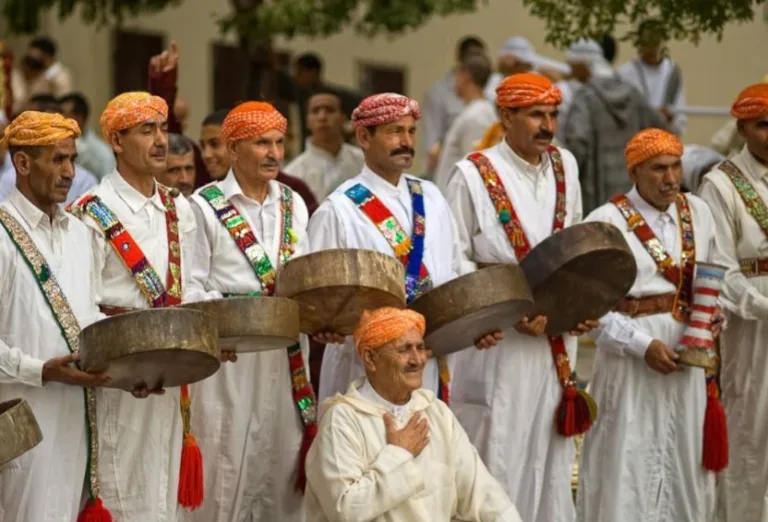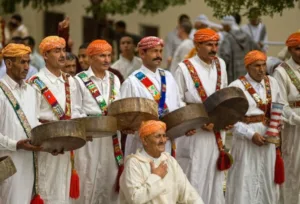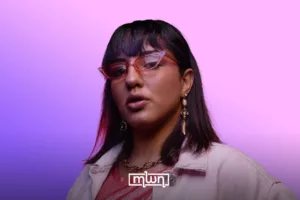Rabat – A popular TV series depicting the life and struggles of a “Shikha” (female performer) is sharply dividing opinion in Morocco.
While conservative voices have lashed out at the show for being morally pervert and promoting “vice” and debauchery, more liberal-minded Moroccans have welcomed the TV series for its “perfect” depiction of the Moroccan reality and social taboos surrounding a hot-button topic.
The series in question is Moroccan-made and broadcasted in primetime on national television under the title “Maktub,” a word in Moroccan Arabic and Classic Arabic that denotes destiny.
Yassine El Amri, a prominent Moroccan religious figure and media influencer, lashed out in a video earlier today at a Moroccan series centered around a story of “Shikha,” a Moroccan folklore dancer and singer.
In the video, El Amari explains his outrage over the Moroccan series for “normalizing vice.” The conservative influencer conceded that he did not watch the series firsthand, but he nonetheless went on to suggest that discussions surrounding the series make it clear that the show is offensive and unfit for screening in Morocco.
The series in question is Moroccan-made and broadcasted in primetime on national television under the title “Maktub,” a word in Moroccan Arabic and Classic Arabic that denotes destiny.
It is this Ramadan season’s most trending show in Morocco, according to local media. The series has also attracted the attention of international media, with many observers celebrating and supporting Dounia Boutazout’s (the lead character) performance.
But outraged conservative commentators and influencers have taken issue with what they perceive as the normalization of “Shikha,” a word they say is obscene, socially offending, and religiously forbidden.
El Amari described the series as an “attack” on what he termed as the traditionally pious, conservative, and prudish Moroccan viewers. “They (media) are unleashing dogs on people, for me the dogs of the media are series, movies, drama, as well as some programs,” he stressed.
“They are unleashing on people a series about a ‘Shikha,’” El Amri continued, emphasizing the word ‘Shikha’ to indicate its pejorative undertone. In colloquial Moroccan Arabic, ‘Shikha’ is frequently used as an insult.
“The word ‘Shikha’ sends shivers down the spines of women whenever they hear it, and now they (the media) want to normalize that word,” fumed the religious influencer.
He then moved on to the plot, noting that he found it especially offending for Moroccans. The series tells the story of the daughter of a Shikha who is bullied at school as her classmates make fun of her mom for working as a traditional, suggestive dancer and singer.
However, the daughter “stands her ground” and does well at school eventually “becoming proud of her mother’s career.” Elmari says that this is especially offensive to Moroccan views as the series attempts to normalize that which is socially obscene and prohibited by religion.
Despite El Amri’s outrage, the ‘Al Maktub’ series seems to have garnered significant acclaim and record-high viewership. Many insist that the series is resonating with Moroccans for accurately tackling a hot-button topic in Moroccan society.
The other end of the controversy
At the other end of the debate, news reports have been hailing the new drama-comedy show for the “outstanding” performance of actors and for shedding light on the “social stigma” surrounding women opting for a ‘Shikha’ career.
Al Arab news outlet wrote a piece on the series titled “‘Al Maktub’: A Series that Deeply Resonated with Moroccans.” The article lauds the “artistically-acclaimed series” for perfectly depicting the Moroccan reality.
In addition to attracting a large viewership during its screening hours, the series is also a major hit on YouTube where it has so far garnered over 16 million views. As it now holds the highest viewership in the history of the Moroccan channel, the controversial series has steered significant discussion on social media.
Alongside the loud outrage of the series’ conservative critics, many on social media have shared clips from the series while complimenting actors and actresses on their performance and venturing into discussions about the social issues the series tackles.
The series especially highlights the unending struggles associated with being ‘Shikha’ in Moroccan society, as women practicing this profession are routinely frowned upon, rejected, disrespected, and deemed embarrassing by many of their loved ones.
Many conservatives see Shikhas as not just singers or performers but seducers of men.
And while husbands often forbid their wives from befriending Shikhas, there are Moroccan folktales of women viewing these performers as diabolically feminine figures that should be shunned at all costs as they are capable of “stealing” their men.
Read Also: Moroccan TV Channels Announce New Programs for Ramadan
















